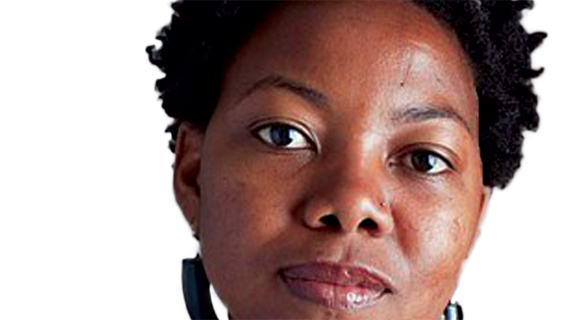
LONDON — “Let no one be fooled by the fact that we may write in English, for we intend to do unheard-of things with it,” Chinua Achebe an inspiration to NoViolet Bulawayo said. NoViolet uses words potently, blending brutality and lyricism in her unflinching, bittersweet story of displacement, We Need New Names.
Report by The Guardian
Her narrator, the young girl Darling, and her friends have lost their homes and now live in Paradise, a Zimbabwean shanty, where they steal guavas, witness violent racial tensions and dream of escape.
“I wanted to tell a story that was urgent, that came from the bone,” she explains.
“I’m trying to say that we need new identities, new ways of seeing things, new ways of being,” the 31-year-old, who was born in Bulawayo a year after independence and left for the US at the age of 18, says.
She followed her dream of becoming a writer, earning her MFA at Cornell University and winning the 2011 Caine prize for African writing for a short story.
The author chose her own name: “Violet is my mother’s name. She died when I was 18 months. It was my way of honouring her memory. Adopting her name gave me peace and some closure,” she explains.
“Bulawayo is the city of my people. I wasn’t able to go home for 13 years which made me nostalgic and want to connect with the homeland.”
- Chamisa under fire over US$120K donation
- Mavhunga puts DeMbare into Chibuku quarterfinals
- Pension funds bet on Cabora Bassa oilfields
- Councils defy govt fire tender directive
Keep Reading
Connecting is the challenge facing Darling, too, when she journeys to the US to live with her aunt, and learns the powers and pitfalls of technological communication.
Bulawayo searingly captures the traumas of Zimbabwe’s “lost decade” (2000-2010) : “Being in the US accorded the distance to look at things with more intimacy,” reflects Bulawayo. “Being away made me write from a place of pain. I saw an image of a small kid sitting on a bulldozed home – it broke my heart.”
What’s important to Bulawayo is “pinning down emotion”.
She perceptively tackles painful topics from desperation to disease, but joy also resonates in her writing: “I was brought up on stories — my grandmother was a storyteller and her stories were laced with humour, so that they were tolerable. It’s a tense book, but humour reminds us that all is not lost. I’m trying to celebrate humanity.”










